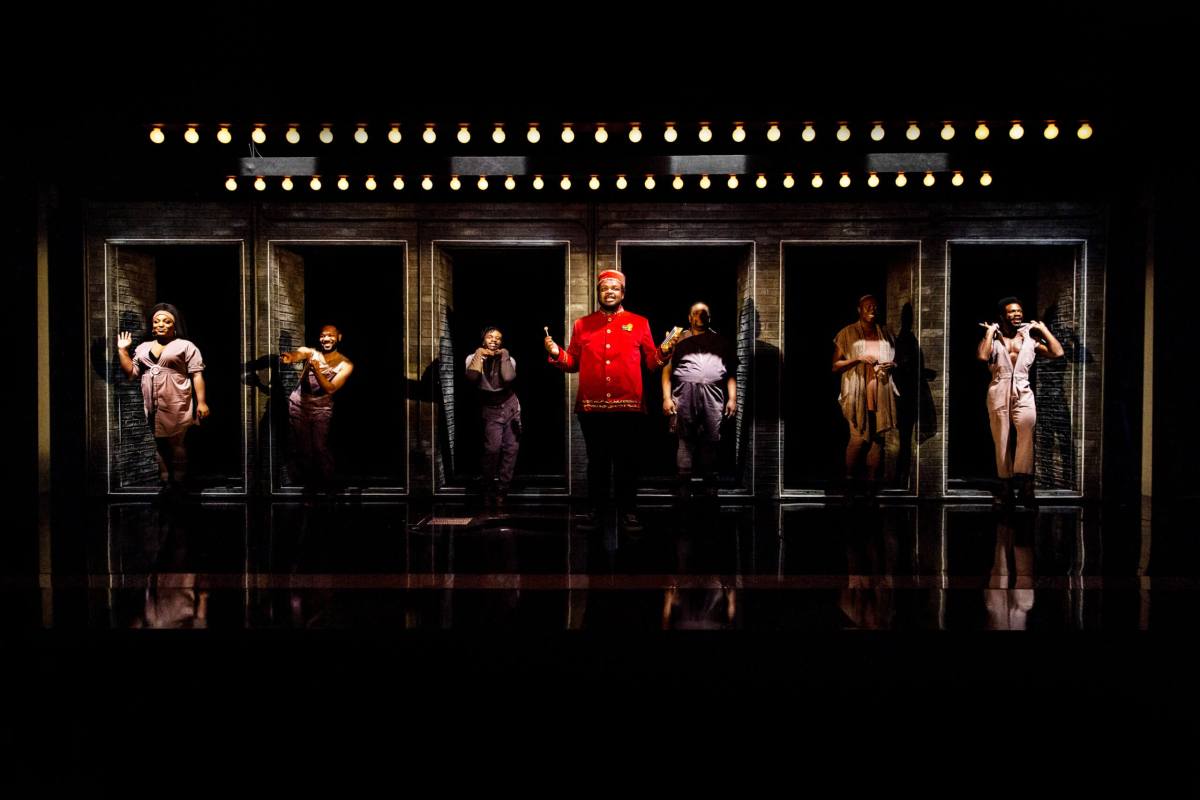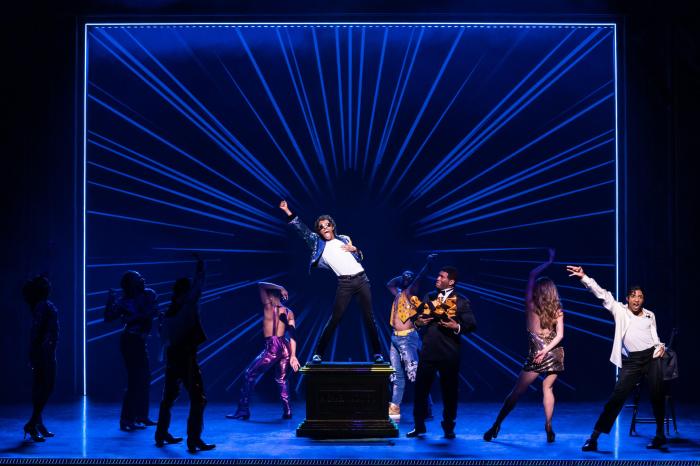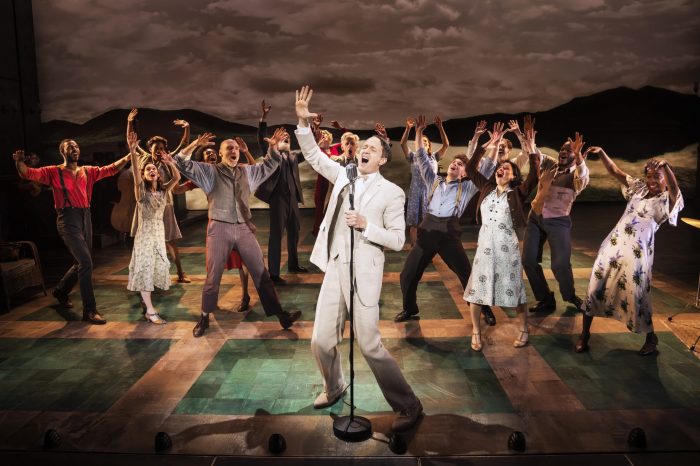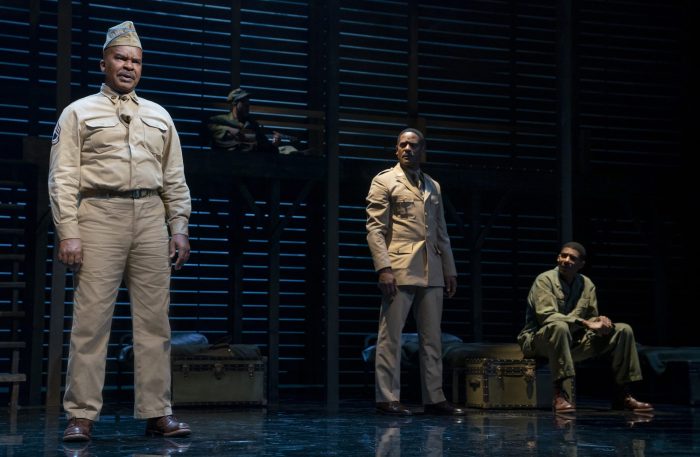Self-loathing turns into self-analysis, self-parody, and self-indulgence in “A Strange Loop,” a wild, raw, relentless, and unapologetically over-the-top monologue-turned-ensemble musical by Michael R. Jackson, who should not be confused with the similarly-named late pop star (whose work can currently be relieved on Broadway in the bio-jukebox musical “MJ”).
“A Strange Loop” received an Off-Broadway premiere in 2019 at Playwrights Horizons. After winning the Pulitzer Prize for Drama and receiving a new production in Washington, D.C., it has made an unlikely transfer to Broadway. Celebrity above-the-title producers for the Broadway production include RuPaul Charles, Alan Cumming, Llana Glazer, Jennifer Hudson, Mindy Kaling, and Billy Porter.
Jackson (who wrote the book, music, and lyrics) is an extremely talented and promising young artist who holds multiple degrees in dramatic writing and has received numerous awards and commissions.
The musical concerns a 25-year-old Black, gay, overweight, depressed usher/writer who is trying to write a musical about a 25-year-old Black, gay, overweight, depressed usher/writer who is trying to write a musical about…
Jaquel Spivey (in a standout, poignant lead performance) plays Usher (who works as an usher at “The Lion King”). He is joined by five men and one woman who play Thoughts 1 through 6, representing numerous figures who pop up in Usher’s head, including his agent, family, potential love interests (both real and imagined), historical figures (Whitney Houston emerges from beneath the stage in a coffin), and theatergoers during intermission at “The Lion King.”
In a program note for the Playwrights Horizons production, Jackson defined the term “strange loop” (originally conceived by cognitive scientist and professor Douglas Hofstadter) as “a collection of meaningless symbols mirroring back on their own essences in repetition until death.”
With that in mind, the musical (which is directed with precision and heightened energy by Stephen Brackett, “Be More Chill”) does resemble a “strange loop,” full of repeated gestures, complaints and concerns, ultimately culminating in a ridiculous climax (in which Usher attempts to create a Tyler Perry-style gospel drama), breakdown, and reboot.
In spite of inventive touches, satirical humor, fluid production values, and songs full of both spark and sensitivity, “A Strange Loop” ultimately falls victim to the perils of its own design, becoming so messy, whiny, confrontational, sexually explicit, and theoretical that it will probably turn off many theatergoers while invigorating and thrilling plenty of others.
Lyceum Theatre, 149 W. 45th St., strangeloopmusical.com.


















